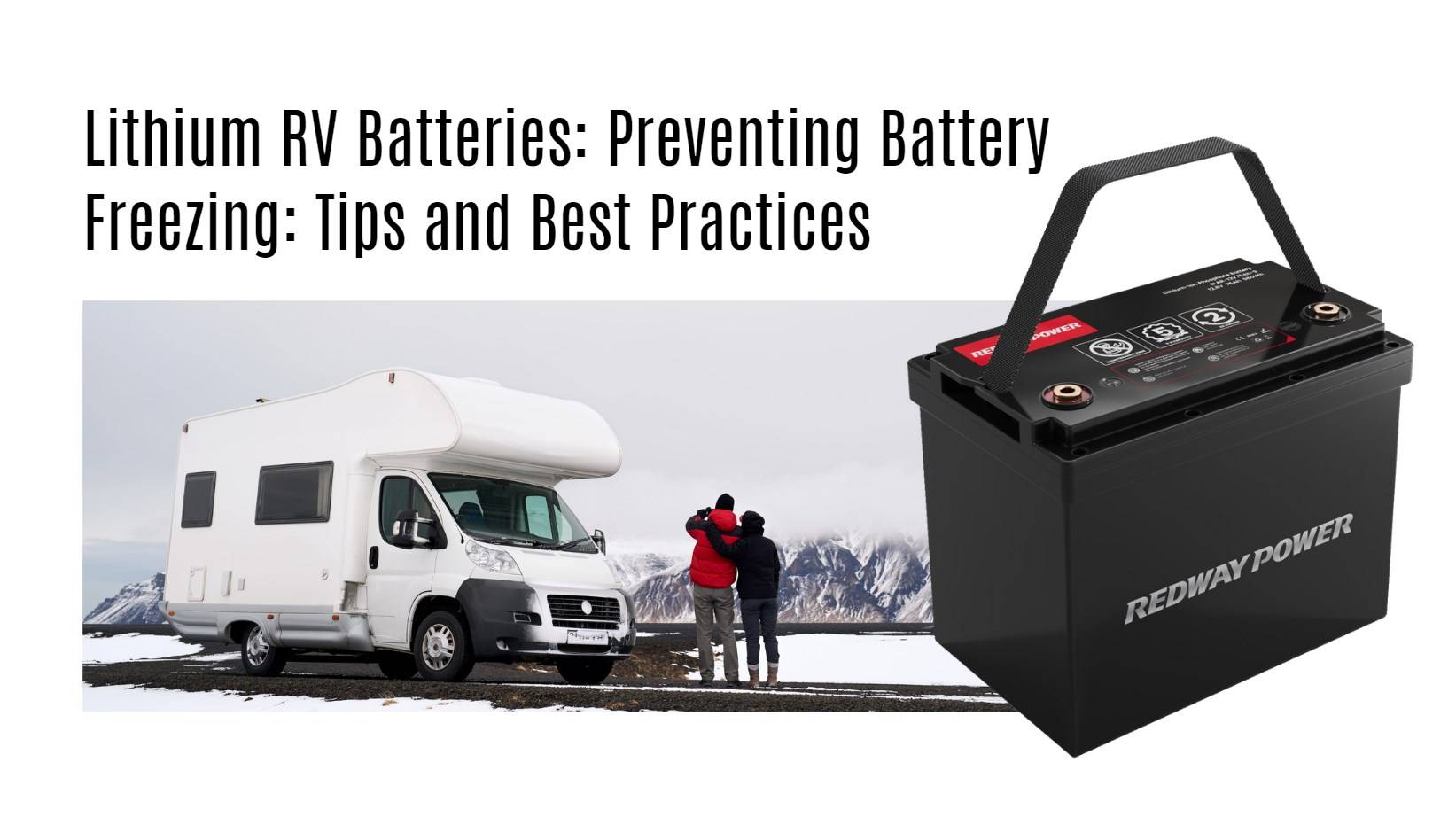Winterizing your lithium RV batteries is essential for maintaining their performance and longevity during cold months. Understanding how cold weather affects lithium batteries and implementing proper storage practices can prevent damage and ensure your batteries are ready for use when spring arrives.
What Happens to Lithium Batteries in Cold Weather?
Cold weather can significantly impact lithium batteries, leading to reduced capacity and efficiency. When temperatures drop, the chemical reactions within the battery slow down, resulting in increased internal resistance. This can lead to diminished performance, slower discharge rates, and longer charging times.
| Temperature Impact | Effect on Performance |
|---|---|
| Above 0°C | Normal performance |
| 0°C to -10°C | Capacity decreases by up to 50% |
| Below -10°C | Risk of irreversible damage |
How Should You Prepare Your Lithium Batteries for Winter?
To prepare your lithium batteries for winter storage:
- Charge Fully: Ensure batteries are fully charged before storage.
- Disconnect: Disconnect them from the RV’s electrical system to prevent parasitic loads.
- Store Indoors: If possible, store batteries in a warmer environment rather than leaving them in the RV.
Why Is It Important to Maintain a Charge Level?
Maintaining an appropriate charge level is crucial for lithium batteries during winter. Ideally, they should be stored at around 40%-60% charge. This helps prevent deep discharges that can lead to permanent capacity loss. Storing them fully charged or completely discharged can cause stress on the battery cells.
| Charge Level | Recommended Action |
|---|---|
| 100% | Not recommended for long-term storage |
| 40%-60% | Ideal charge level for storage |
| Below 20% | Risk of permanent damage |
What Are the Risks of Charging Below Freezing?
Charging lithium batteries below freezing (0°C or 32°F) poses significant risks:
- Lithium Plating: Charging at low temperatures can cause lithium plating on the anode, which reduces capacity and may lead to internal short circuits.
- Damage: Attempting to charge frozen batteries can cause irreversible damage and safety hazards.
How Do Cold Temperatures Affect Lithium Battery Performance?
Cold temperatures negatively affect lithium battery performance by slowing down ion movement within the electrolyte. This leads to increased internal resistance, which results in:
- Slower Discharge Rates: The battery may struggle to deliver power effectively.
- Longer Charging Times: Charging efficiency decreases, making it take longer to reach full charge.
| Temperature Range | Effect on Performance |
|---|---|
| Above 0°C | Normal performance |
| 0°C to -10°C | Reduced capacity |
| Below -10°C | Significant risk of damage |
What Are the Best Practices for Storing Lithium Batteries in Winter?
To ensure optimal performance and longevity during winter storage:
- Store at Room Temperature: Keep batteries in a cool, dry place within the recommended temperature range.
- Avoid Full Charge Before Storage: Store batteries at about 40%-60% charge to minimize stress.
- Use Insulation: If storing in colder environments, use insulation materials to protect against temperature fluctuations.
Why Is a Battery Management System (BMS) Important?
A Battery Management System (BMS) is crucial when using lithium batteries in an RV because it helps:
- Prevent Overcharging: The BMS monitors voltage and prevents charging beyond safe limits.
- Balance Cells: Ensures all cells within the battery are charged evenly, enhancing safety and longevity.
- Provide Safety Alerts: Notifies users of potential issues like overheating or low voltage.
Redway Battery has a great solution for those looking for reliable alternatives when managing lithium-ion battery performance effectively.
Tips for Battery Wholesale Buyers
When sourcing lithium batteries:
- Evaluate specific application needs regarding capacity and size.
- Choose suppliers who provide comprehensive specifications on compatibility.
- Ensure that proper support and warranty options are available from your supplier.
Redway Battery stands out as an excellent choice for battery wholesale buyers or OEM clients seeking reliable partners in lithium battery manufacturing.
Redway Battery Expert Insight
“Properly winterizing your lithium RV batteries is key to ensuring their reliability and longevity during cold months. By following best practices and utilizing advanced management systems, users can maximize their investment.”
FAQ Section
- How do cold temperatures affect lithium batteries?
Cold temperatures reduce capacity and efficiency, slowing down chemical reactions within the battery. - What is the ideal charge level for storing lithium batteries?
The ideal charge level is around 40%-60% before winter storage. - Why should you avoid charging below freezing?
Charging below freezing can cause lithium plating and potential irreversible damage. - What should you do before storing lithium batteries for winter?
Fully charge them, disconnect from the electrical system, and store them indoors if possible.







